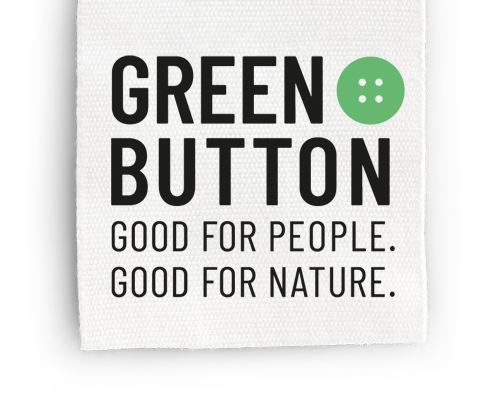3 Questions for
Carolin Franitza | OEKO-TEX® Association
Carolin Franitza studied Textile and Apparel Management in Mönchengladbach and has been a Stakeholder Manager at the OEKO-TEX® Association since 2022. OEKO-TEX® has been recognised (certification) with its OEKO-TEX® MADE IN GREEN label in the Green Button meta-label approach since 2019. OEKO-TEX® STANDARD 100 and OEKO-TEX® ORGANIC COTTON were added as recognised (certification) labels with the Green Button 2.0. Companies can only label their textile products with the Green Button if they meet the requirements for corporate due diligence processes of the Green Button and also prove that their textile products have a label recognised (certification) by the Green Button, such as OEKO-TEX® and its labels. This is the basis of the Green Button's meta-label approach. OEKO-TEX® also introduced certification for corporate due diligence in 2021. As part of the fifth anniversary of the Green Button, we asked Carolin Franitza what influence the Green Button has had on OEKO-TEX® and its labels.

1. Today we are celebrating the fifth anniversary of the Green Button. The Green Button's meta-label approach recognizes 20 labels, including OEKO-TEX® labels. How do you at OEKO-TEX® look back on the introduction of the Green Button and what impulses has it given for your own further development?
The Green Button has successfully integrated existing labels such as OEKO-TEX® STANDARD 100, OEKO-TEX® ORGANIC COTTON and OEKO-TEX® MADE IN GREEN via its meta-label approach in order to verify product and process requirements and supplement these with corporate due diligence obligations. This is intended to avoid duplicate audits and significantly reduce the burden on companies. The meta-label approach is therefore a significant milestone that strengthens both consumer safety and the stability of supply chains, while at the same time enabling more efficient work processes. Cooperation between industry, politics and science is crucial to further advance sustainability in the industry.
2. What impact and added value has the introduction of the Green Button had on your OEKO-TEX® labels?
The introduction of the Green Button has further raised awareness of sustainability in the textile industry and further emphasized the importance of OEKO-TEX® standards. The recognition of our certifications in the context of the Green Button confirms the importance and reliability of our labels, which further strengthens confidence in our work.
3. Which stakeholders benefit from the requirements set out in the OEKO-TEX® labels? What improvements will result for Green Button products that are based on OEKO-TEX® labels for product claims?
Companies that are both certified with the Green Button and OEKO-TEX® certificates benefit from comprehensive coverage of sustainability aspects. While OEKO-TEX® MADE IN GREEN covers specific product and production aspects, including child labour, maternity protection, chemicals and labour rights, the Green Button expands this approach by taking into account social and environmental requirements for the entire company management, similar to OEKO-TEX® RESPONSIBLE BUSINESS. The combination of these standards stands for high product safety as well as exemplary sustainable corporate management. Consumers are protected by trustworthy and sustainable products, while companies strengthen their market position through increased credibility, and the supply chain is improved through stricter standards and transparency.
